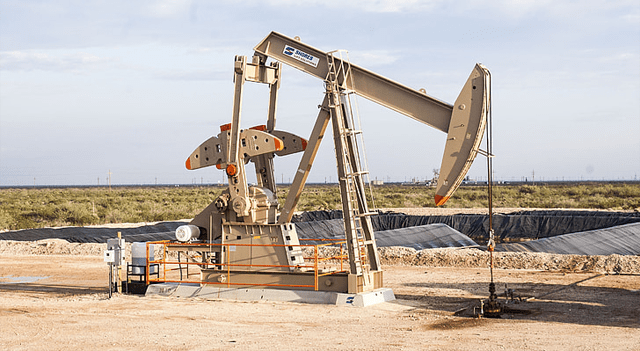Oil prices slipped on Tuesday, easing nearly 1% after supply fears diminished when loadings resumed at a key Russian export hub that had been briefly disrupted by a Ukrainian drone and missile strike. Traders also continued to weigh how Western sanctions could reshape Russian crude flows in the months ahead.
By 07:20 GMT, Brent crude had fallen 56 cents, or 0.9%, to $63.64 a barrel, while U.S. West Texas Intermediate (WTI) lost 54 cents, or 0.9%, to trade at $59.37.
Russia’s Novorossiysk port restarted crude loadings on Sunday following a two-day suspension caused by the attack, according to two industry sources and data compiled by LSEG.
Crude edged lower “as reports indicate that loadings have resumed sooner than expected at Novorossiysk,” IG analyst Tony Sycamore wrote in a research note.
Exports from Novorossiysk and the nearby Caspian Pipeline Consortium terminal — which together account for around 2.2 million barrels per day, roughly 2% of global output — were halted on Friday, briefly lifting crude prices more than 2%.
With the immediate supply interruption resolved, attention has turned back to the broader impact of sanctions targeting Russia’s oil sector.
The U.S. Treasury said sanctions imposed in October on Rosneft and Lukoil are already pressuring Moscow’s export revenues and are expected to reduce export levels over time.
ANZ Research noted that Russian barrels are now trading at a meaningful discount to international benchmarks.
“Market worries centre around the build-up of oil on tankers as buyers assess the risk of potentially breaching sanctions,” said Vivek Dhar, mining and energy commodities strategist at Commonwealth Bank of Australia. However, he added that past episodes show Russia’s ability to navigate restrictions: “We expect any disruption from U.S. sanctions will prove temporary as Russia finds ways to circumvent sanctions once again.”
Meanwhile, geopolitical signals from Washington added an additional layer of uncertainty. A senior White House official said U.S. President Donald Trump is prepared to sign Russia sanctions legislation provided he maintains final authority over its enforcement. Trump also said on Sunday that Republicans are crafting a bill targeting any country doing business with Russia, adding that Iran may also be included.
Looking ahead, Goldman Sachs said on Monday that it expects oil prices to trend lower through 2026 due to a significant wave of new supply keeping the market in surplus. Still, the bank noted Brent could exceed $70 a barrel in 2026–2027 if Russian production experiences steeper-than-anticipated declines.
